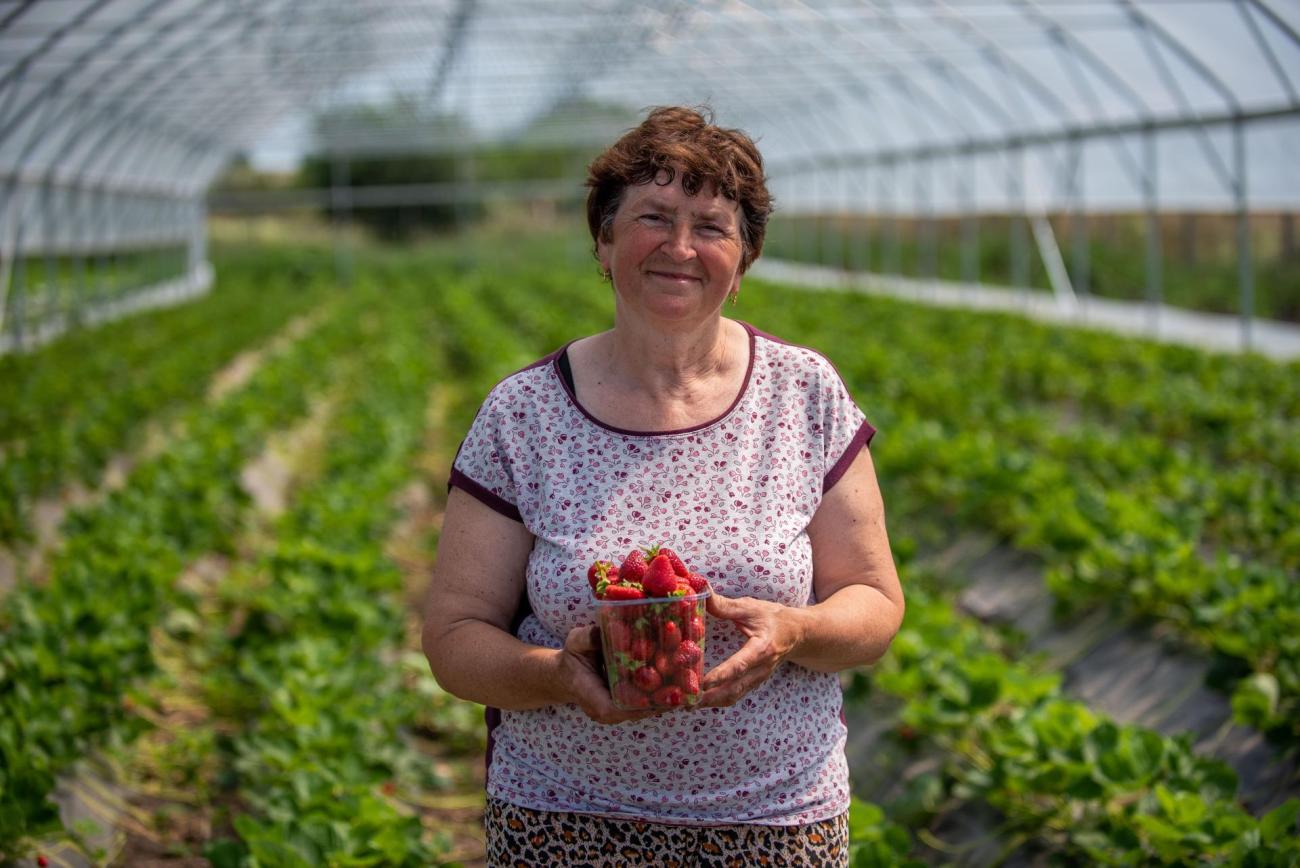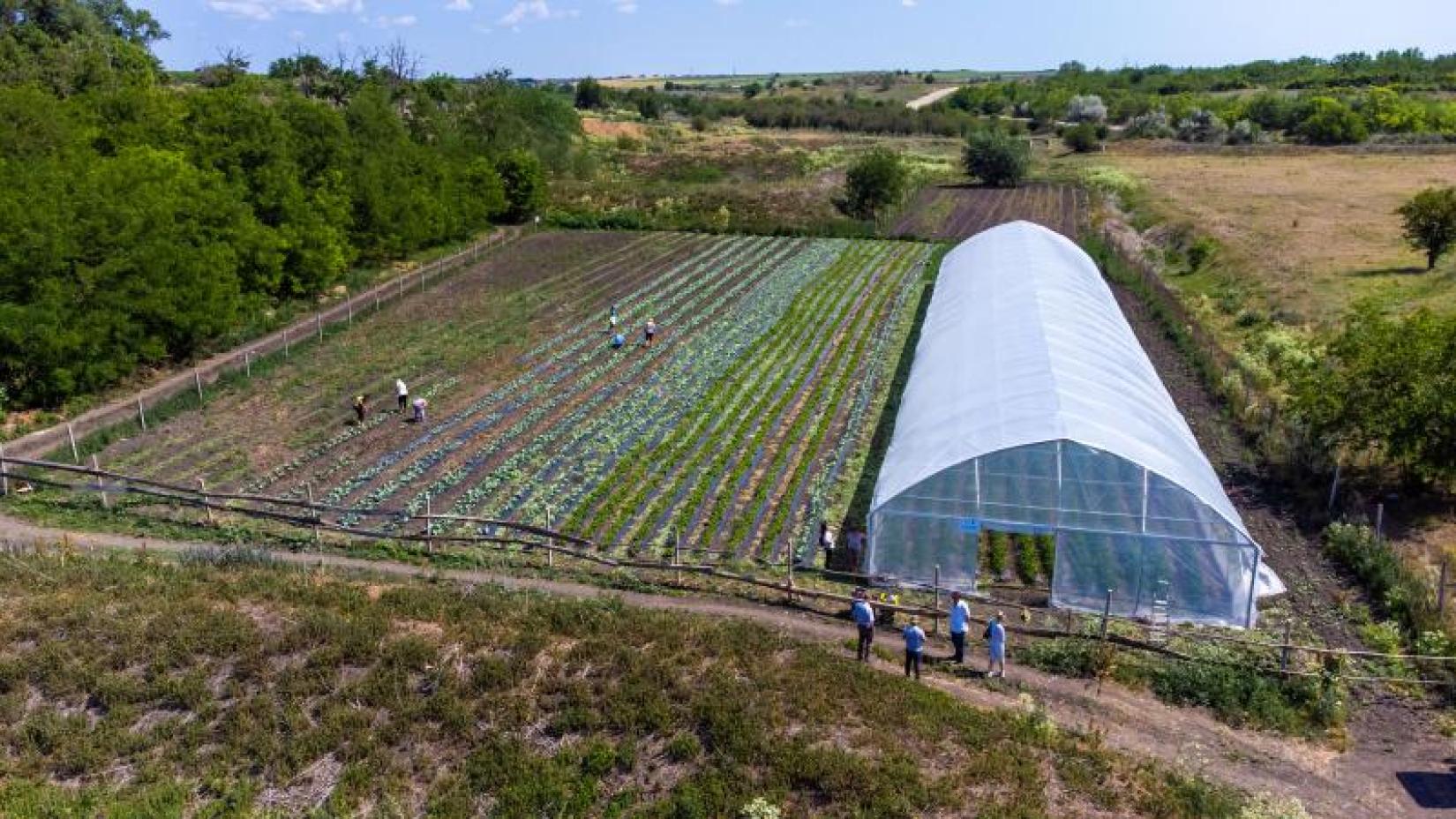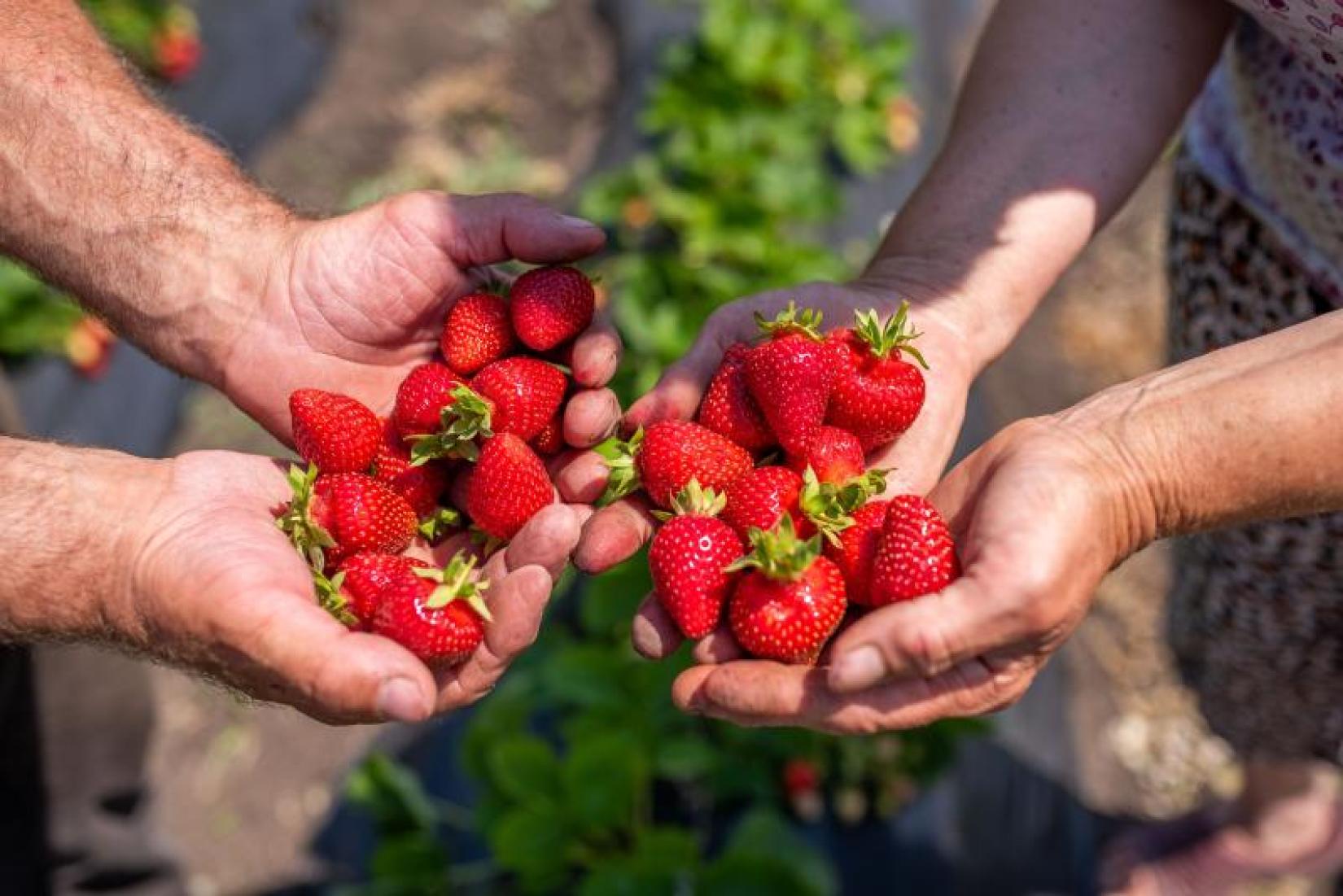Climate change resilient business: strawberries are sold like hot cakes in Parcani

Nadejda Dobrova from Parcani village on the left side of the Nistru river manages a farm specialized in growing strawberries.
The entrepreneur developed her business this spring, thanks to a grant obtained from Sweden in the framework of the “Sustainable and resilient communities through women empowerment” UNDP project.
Taking care of the few cattle in the household has been Nadejda’s main activity for a number of years, alongside the agricultural works. “Not an easy task. I had to take care of six cows. I used to get up when it was still dark to collect the milk, which was to be sold as soon as possible to avoid its spoiling, and I would work till midnight for making the cheese. It is quite exhausting work at the age of 60,” says the woman.
Last year, Nadejda decided to start growing strawberries so as to become financially independent and to create jobs for other women from her community. The investments to start up such a business are much higher than the family could afford. She found out from her children about the grants provided by Sweden and UNDP, who have encouraged her and helped her to submit the application to take part in the competition.

“I have grown strawberries before as well, but only in open field, and the harvests were mainly destroyed by rains. I have discussed with the family and we decided to build a greenhouse. My sons told me about this project and that I meet all the participation requirements. I was so glad when they told me that I was one of the winners. It is not so easy to gather such an amount with our own forces.”
The grant of US$12.600 has helped her to build the greenhouse, to import the seedling and to conclude all necessary documents: “We built the greenhouse at the beginning of March and in April we have planted the seedling,” tells joyfully Nadejda Dobrova.
She has planted two varieties of strawberries in the greenhouse of 500 square meters: Asia and Alba, imported from Italy, adapted to the climate conditions in the Republic of Moldova. She has cropped several rows in the open field as well.
The entrepreneur grows an organic product, this being one of the project’s requirements. To have a rich harvest, she uses only natural fertilizers obtained from manure and well water. To protect the plantation against pests, she has planted garlic along the land field.
Nadejda has already got the first harvest. She got up to 300 grams of strawberries per plant. The harvest will double next year. The sweet and aromatic berries are sold like hot cakes, ending up as well in the children’s camp near Bender (Tighina). The demand for strawberries is high thanks to their sweet flavor, but also the benefits for health.

“The buyers are satisfied. They even allow their children to eat as much as they want, as they know that the product is of high quality. And this makes me happy. I would not have been able to start this business without this grant.”
Nadejda’s husband is very engaged in the family business development. “Strawberries are of the best quality. I have seen already the benefits induced by the sunbeds. This is just the first step and encouragement to develop the business further on,” notes Vasile Dobrov, Nadejda’s husband. The spouses hope to build one more greenhouse.
Besides the non-reimbursable financial assistance, Nadejda also benefits from mentorship and training provided by the environmental NGO “Pomul Vieții”, selected by the UNDP project “Climate resilient communities by empowering women”.
“In the Transnistrian region, there are few businesses managed by women. Our aim is to inform about the sustainable practices which may be used in agriculture, so as to adapt to climate change, especially in protected spaces. We have conducted an analysis of the soil from this region, of its structure, to advice what can be planted in the greenhouse and what microelements are necessary to obtain a good and organic harvest,” mentions Aliona Andreiciuc, representative of the “Pomul Vieții” NGO.
Now Nadejda Dobrova is learning how to manage the natural resources in a sustainable and efficient way, to reduce environment degradation and to increase climate change resilience at the local level. “She has taken into account all our recommendations and the result is compelling – healthy plants and a rich harvest. We will continue our trainings to discuss about the setup of a system to collect rainwater from the greenhouse surface, so as to settle the problem of insufficient drinking water not contaminated with pesticides. Rainwater collection represents a modality for saving drinking water,” adds Aliona Andreiciuc. About 150 tons of water may be collected per year from a greenhouse like that of Nadejda.
11 women entrepreneurs from Nisporeni, Călărași, Leova, Dubăsari districts, Gagauzia and Transnistrian regions obtained grants of up to $18.000 each to start up or to develop environmentally friendly and climate resilient businesses.
Women from rural area are four times more prone to poverty, are under-presented in decision-taking process and more vulnerable to climate change. “Sustainable and resilient communities through women empowerment” project aims to increase women’s access to alternative income-generating activities, as well as to knowledge and information on resilient management of natural and agricultural resources. The project is implemented by UNDP during 2020 – 2023, with financial assistance from Sweden.






